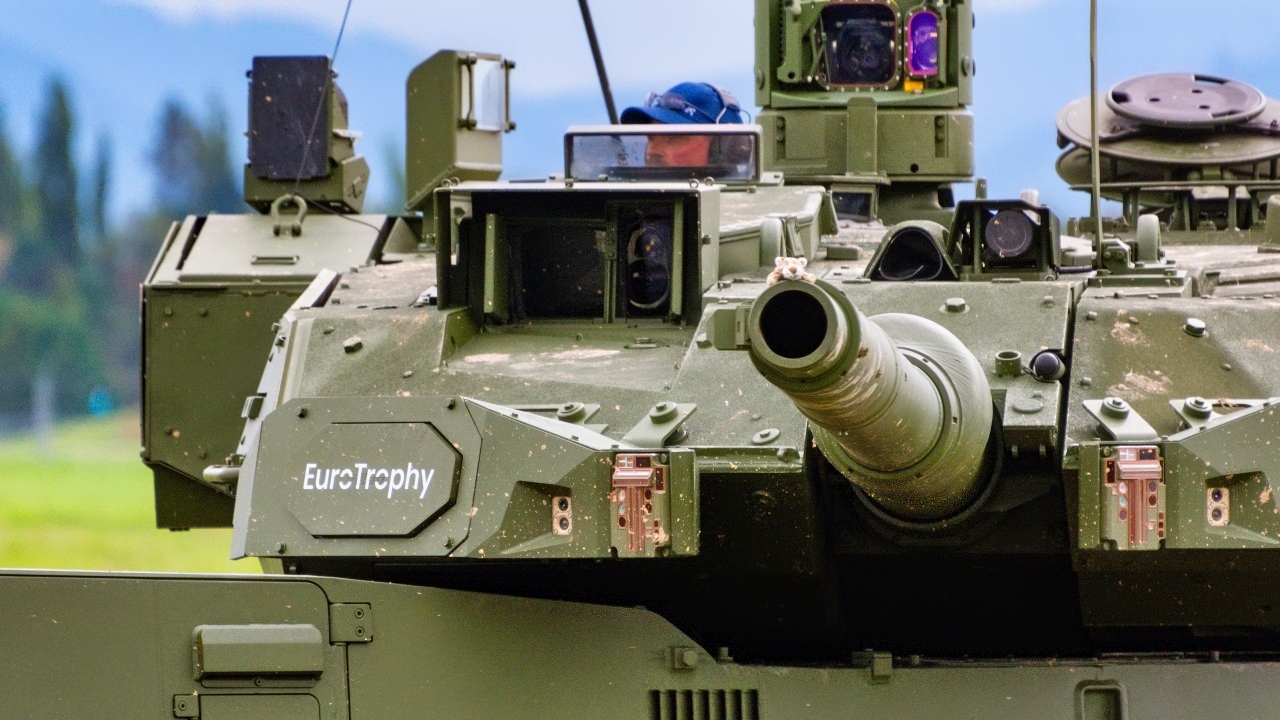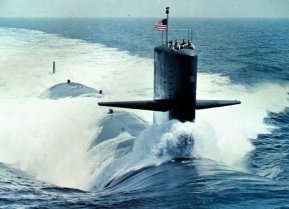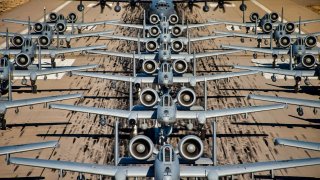NATO Needs Ukraine to Win the War Against Russia
NATO’s future security hinges on Ukraine's victory over Russia. A decisive Ukrainian win would weaken Russia’s imperial ambitions, curbing Moscow's threat to NATO and possibly shifting Russian public opinion away from expansionist goals.
What You Need to Know: NATO’s future security hinges on Ukraine's victory over Russia. A decisive Ukrainian win would weaken Russia’s imperial ambitions, curbing Moscow's threat to NATO and possibly shifting Russian public opinion away from expansionist goals. Alternatively, a Russian victory or prolonged stalemate would allow Moscow to rebuild its forces and potentially escalate aggression toward NATO countries.

-Given the geopolitical stakes, ensuring Ukraine has the resources to defeat Russia is vital to sustaining European peace and stability.
-A loss for Ukraine could embolden Russia to challenge NATO directly, reinforcing the importance of a Ukrainian flag flying in Crimea, as Garry Kasparov argues.
The Future Russian Threat to NATO Hinges on Ukrainian Victory
If NATO seeks a lasting peace in Europe, it depends on Ukraine prevailing against Russia on the battlefield. A Russian victory, with its absorption of Ukraine’s population and industrial base, would dramatically increase the threat to NATO.
Even a stalemate would allow Russia time to rebuild its military and test NATO's resolve in future conflicts. Russia’s increasingly aggressive behavior may signal the final throes of a waning empire, but it is determined to fight with everything it has to keep that empire alive. However, if Ukraine is provided with all it needs to defeat Russia, it might finally convince Russian elites and the public that the pursuit of imperial ambitions is a costly and futile endeavor.
Russia’s ambition to dominate Ukraine isn’t limited to Putin’s leadership. When Ukraine gained independence from the Soviet Union in 1991, even Russia's first democratically elected president, Boris Yeltsin, reportedly considered a nuclear strike against Ukraine. By 1994, Russia had already attempted to assert control over Crimea. After Ukrainians pushed for closer ties with the European Union in 2013, Putin escalated from economic influence to military aggression, sparking Russia’s hybrid war against the West.
These longstanding ambitions make clear that the Russian state’s determination to control Ukraine transcends individual leaders. History shows that appeasement, such as the muted response to Russia’s annexation of Crimea in 2014, only emboldens Moscow’s aspirations.
If Russia achieves a frozen conflict or peace terms that preserve its gains, European complacency may follow, as seen in Germany, where a recent report suggests it could take nearly a century to restore the Bundeswehr’s military capacity to 2004 levels. Meanwhile, Russia would likely use a reprieve to rebuild and prepare for a "final push" in its imperial ambitions, potentially even testing NATO’s Article 5. After all, Trump once suggested he would "encourage" Russia to attack NATO members that fail to meet their financial commitments to the alliance.

In a scenario where the United States faces multiple conflicts, such as a Chinese attack on Taiwan or a broader Middle East crisis involving Iran, a battle-hardened Russia could see an opportunity to expand its aggression beyond Ukraine, with the Baltics or Moldova as potential targets. The question remains whether Western Europe, particularly Germany, would rise to confront Russia or seek to appease it through compromise, as some voices in Europe currently advocate.
The February 2022 invasion and Ukraine’s resilient response have also triggered an identity shift within Russia, sparking a realization among some Russians that a future without empire is possible. Despite majority support for the war, a decisive Ukrainian victory could serve as a wake-up call, potentially driving the Russian public to rethink their imperial ambitions.
Such a profound defeat would not only diminish the immediate threat to NATO but might also inspire reforms within Russia that reduce its tendency toward military aggression. Russians could finally accept that Russia can exist without needing to enslave Ukraine.
Ultimately, the scale of the Russian threat to NATO depends on Ukraine’s success. A Russian victory would likely produce an emboldened, aggressive power more likely to challenge NATO directly. By contrast, a Ukrainian victory is essential to curbing Russia’s imperialistic aims and ensuring European security. As pro-democracy leader Garry Kasparov aptly stated, “Only the total defeat of the Russian Federation and the Ukrainian flag in Sevastopol [Crimea] will knock the virus of empire out of the brains of Russians. Russians must see – the empire is dead.”
About the Author
David Kirichenko is a freelance journalist and an associate research fellow at the Henry Jackson Society, a London-based think tank. He can be found on X @DVKirichenko.
Image Credit: Creative Commons and/or Shutterstock.


